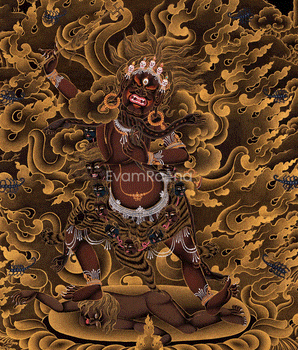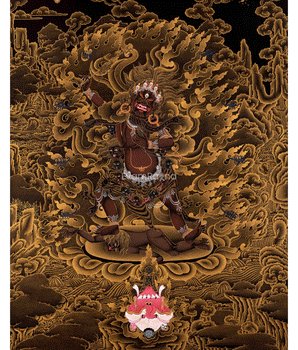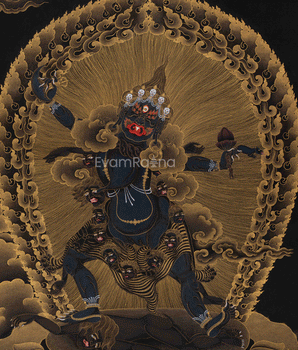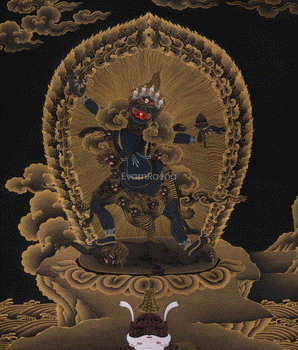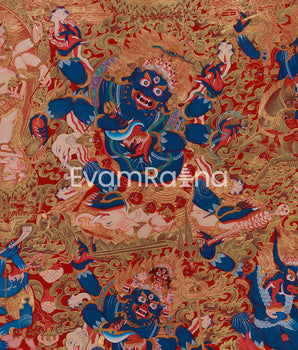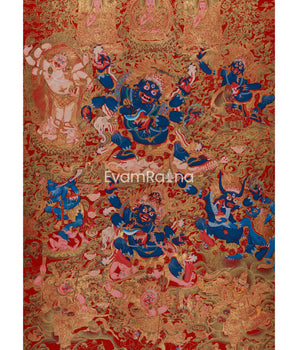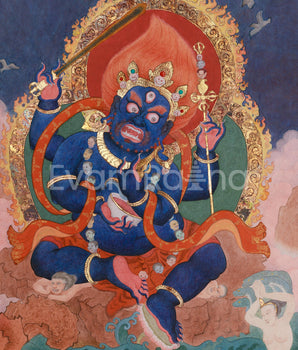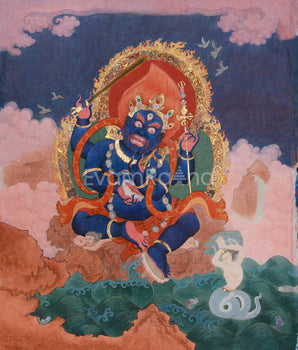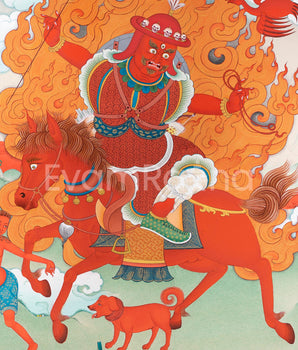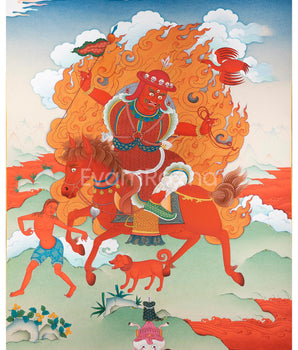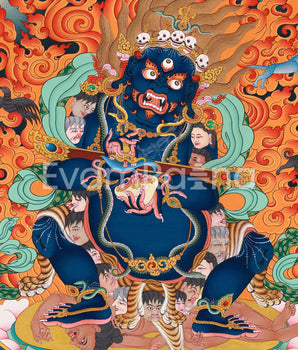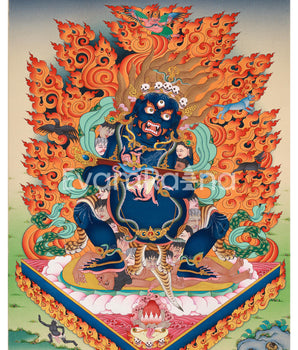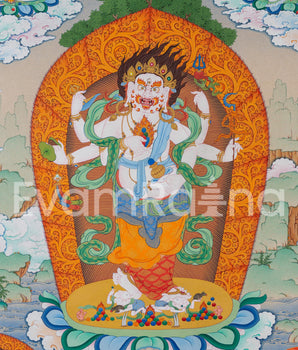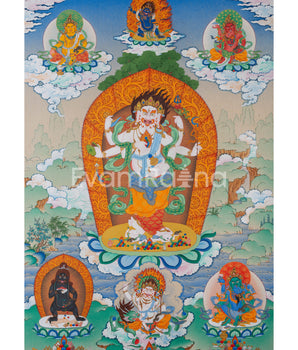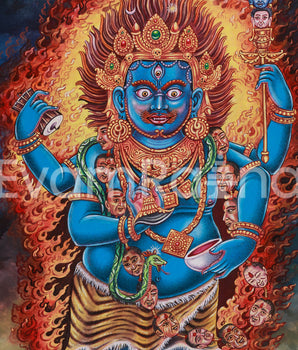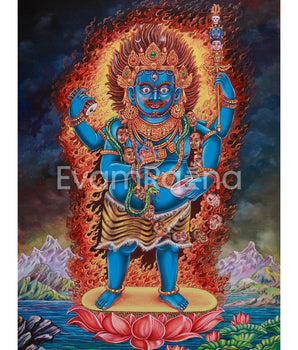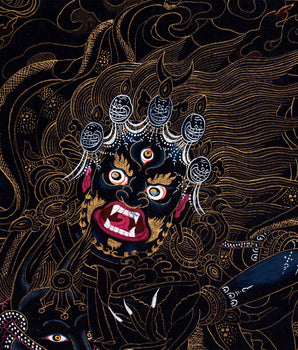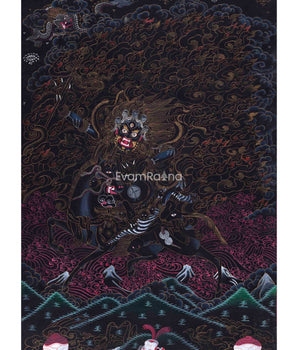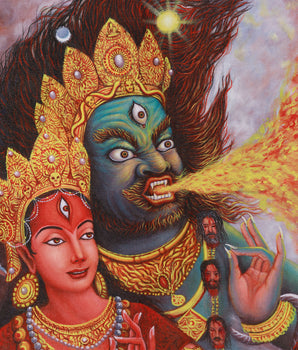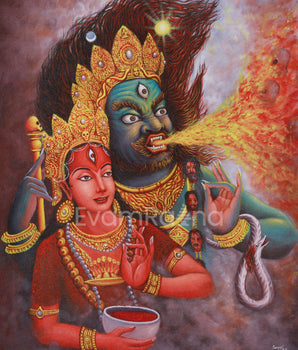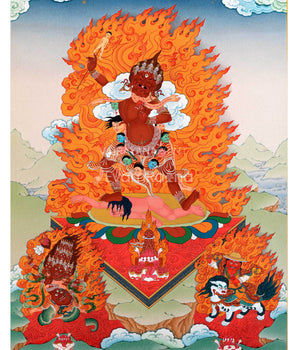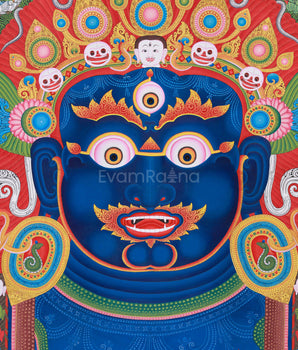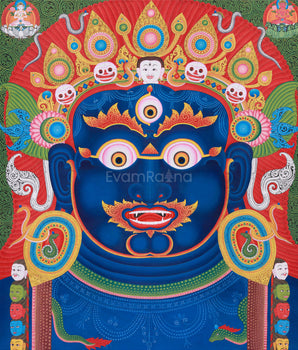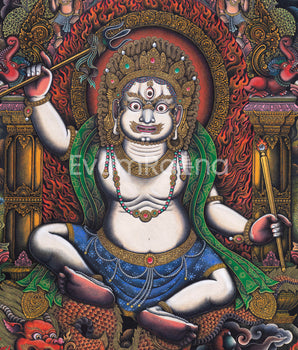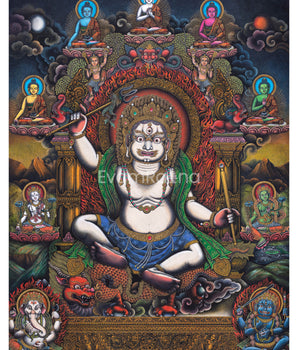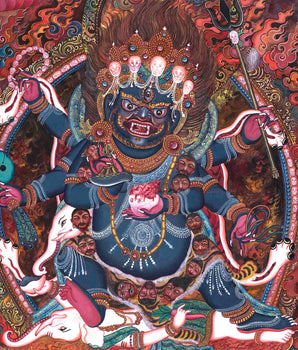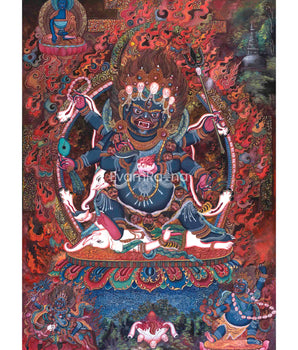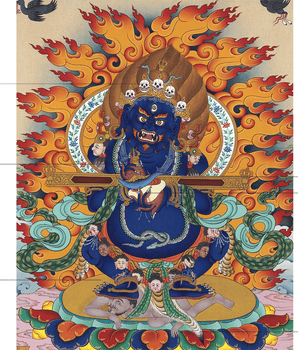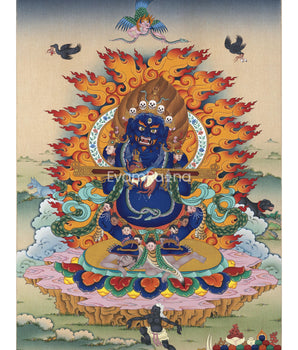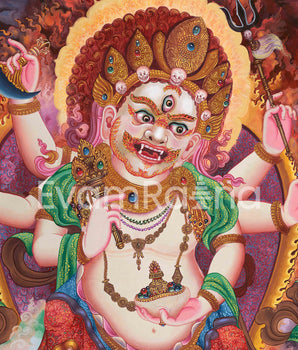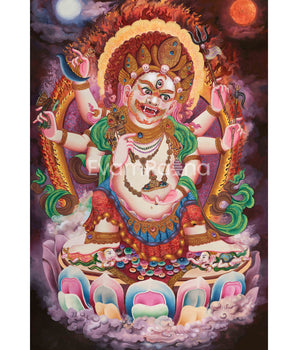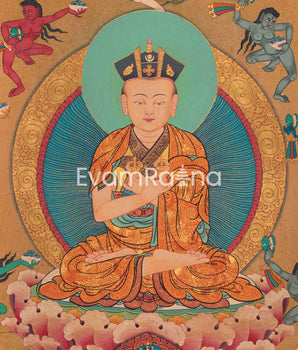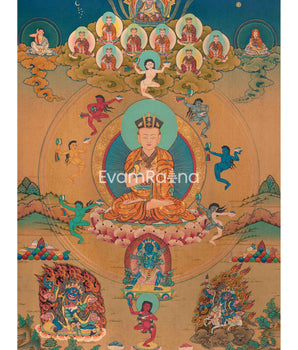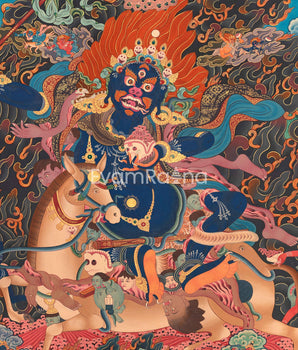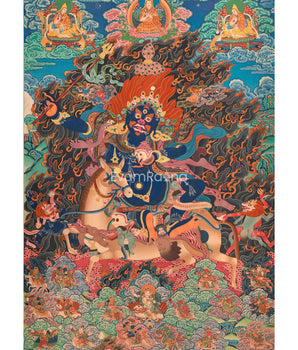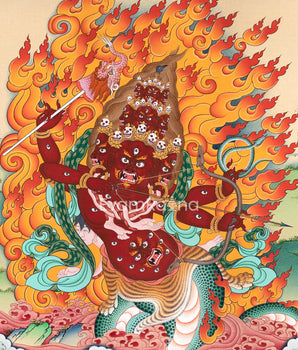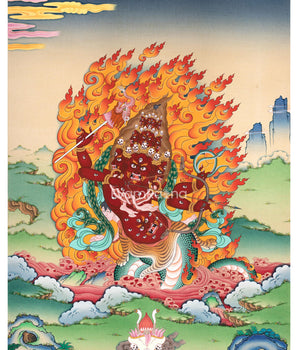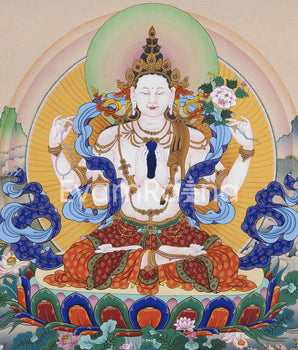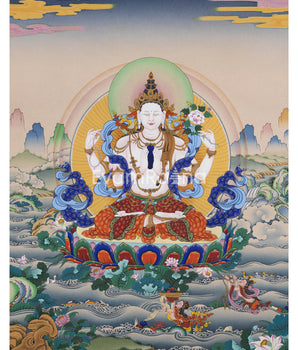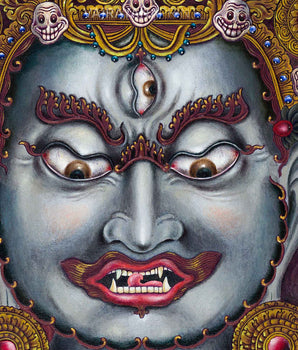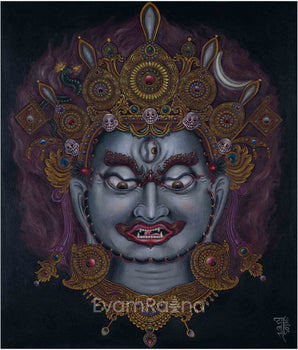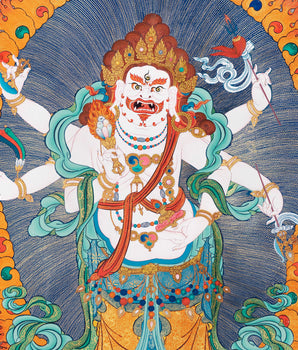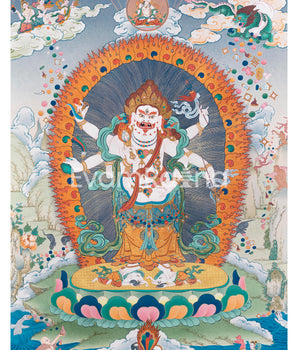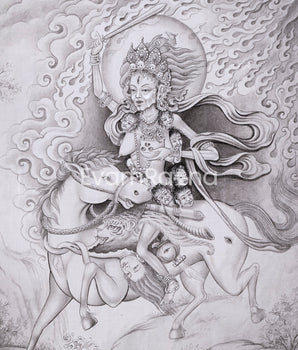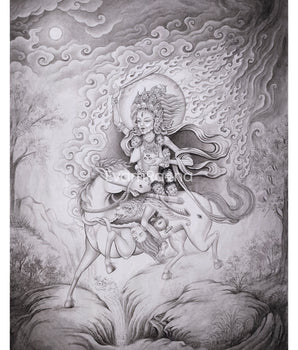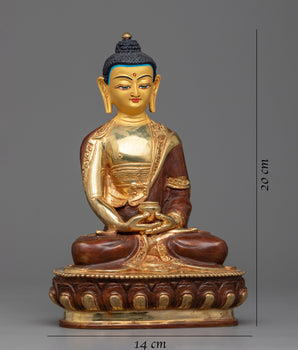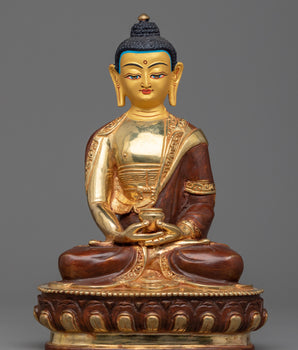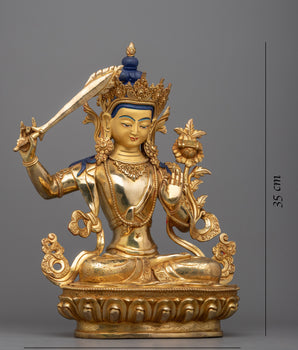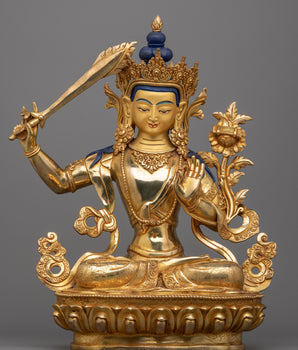Mahakala Prints
Mahakala: The Benevolent Guardian of the Dharma
Background and Significance
In Vajrayana Buddhism, particularly within the Tibetan tradition, Mahakala, meaning "Great Time" or "Great Black One," holds a prominent and deeply revered position. Despite his fearsome appearance, Mahakala is not an evil deity but a Dharmapala, a protector of Buddhist teachings.
His fierce countenance symbolizes the immense energy that conquers negativity and obstacles rather than representing malevolence. Mahakala is a compassionate deity who ensures that those who follow him remain steadfast on their path to enlightenment, undeterred by challenges.
Attributes and Iconography
The iconography of Mahakala is laden with symbolism. Typically depicted in a wrathful posture, his dark or black skin signifies the boundless nature of time. His three protruding eyes symbolize his omniscience, allowing him to perceive the past, present, and future. Often encircled by flames, these flames represent the transformative power of energy, while his multiple arms bear various symbolic implements.
These implements commonly include a chopper, representing the severance of ignorance; a trident, symbolizing the three jewels of Buddhism – the Buddha, Dharma, and Sangha; and a skull cup, containing the nectar of wisdom. The five skulls adorning his crown signify the transformation of the five afflictions – ignorance, anger, pride, jealousy, and desire – into the five wisdoms.
Associated Stories and Beliefs
Buddhist lore contains numerous tales that emphasize Mahakala's role as a protector. One narrative recounts his transition from a Hindu deity to a guardian of the Dharma after losing to the Bodhisattva Avalokiteshvara in a wisdom competition. He willingly accepted his new role in safeguarding the teachings.
In another story, Mahakala intervenes to confront threats to the Dharma emanating from the heart of the Compassionate Buddha, Avalokiteshvara. Mahakala is seen as ever-vigilant and ready to aid practitioners by removing obstacles and ensuring their spiritual progress. Many Tibetan Buddhists invoke Mahakala in rituals and chants as an integral part of their daily practice, seeking his blessings and protection.
Mahakala stands as a guardian against any adversity that may befall students or the Buddha's teachings, embodying strength and compassion. His rich symbolism is a profound reminder that appearances can be deceiving, and what initially appears intimidating can be a potent source of benevolence and protection. Through his unwavering vigilance, Mahakala keeps the flame of the Dharma burning, guiding beings from the darkness of ignorance into the illumination of enlightenment.
Your cart is currently empty.
Start Shopping

